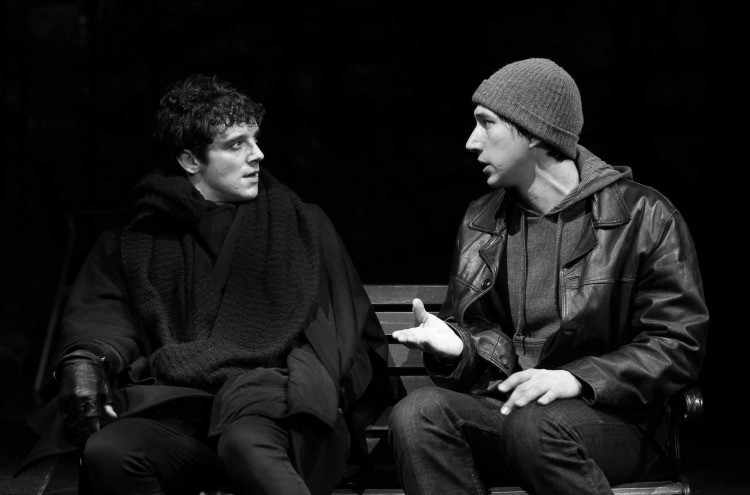There's Something More to Say: Carousel's Missing Narrative

Try as I might to ignore it, there's a part of me that adores Carousel. Yes, even the 2018 revival that I'm about to tear apart. I could pin it on the lush score, probably my favorite from Rodgers and Hammerstein. Or maybe I could pin it on this phenomenal cast: Jessie Mueller! Joshua Henry! Renée Fleming! Lindsay Mendez! Or I could talk about how much I adore the set and the costumes designed by Santo Loquasto. Or the breathtaking, Tony-winning choreography by Justin Peck.
But, no matter what, I always end up with a bitter taste in my mouth. Especially when it comes to this revival.
There's a discussion to be had about why Carousel, which apologizes and even offers redemption for spousal abuse, is being revived at all. It shouldn't take the #MeToo movement for people to realize that the content has deep problems. But I can't stop thinking about this production in particular.
The story of Carousel, in Jack O'Brien's 2018 revival, is entirely about Billy. The story is Billy's life, Billy's death, Billy's entrance into Heaven, Billy looking down below. It focuses on Billy's significance in the stars - the show begins with Heaven, and the Starkeeper spends half of the show standing there, watching Billy make his bad decisions.
It's like O'Brien took Billy's lyrics from the beginning of the show and ran:
There’s a helluva lot o’ stars in the sky,
And the sky’s so big that the sea looks small,
And two little people—
You and I—
We don’t count at all.
Billy does count up in the stars, not just in this particular production. This reading of Carousel is valid, it is supported by the text with the true entrance of the Starkeeper in the second act, it connects back to that bench scene...and yet, the starbound reading is disappointing and even ignorant today.
The spikier, less palatable material is glossed over in favor of the celestial. The best we get is the sexuality present throughout Justin Peck's phenomenal choreography. But the abuse is not addressed in any significant way. Additionally concerning is the somewhat diverse casting. While it is wonderful to see more actors and actresses of color in shows like Carousel, it's not a good look that the man who hits his wife and the criminal are both men of color. If any given element isn't there to serve Billy's story, then this revival speeds past it.
What strikes me the most is the lack of the feminine narrative, particularly female sexuality. It is hiding in every corner of the text: Julie loses her job and risks her good reputation to stay with Billy after he gets fired, Carrie talks about going to see an adult show on her own, Louise has a whole ballet sequence about coming of age and developing her sexuality, Nellie sings about how the month of June gives way to lust. It's not hard to find when you look for it - and it would not be hard to highlight these moments.
These moments aren't given their due weight as they don't slot into Billy's story. Several moments were even cut, notably the two songs "Geraniums In the Winder" and "There's Nothin' So Bad for a Woman," which deal with Carrie as an object of sexual desire while she also asserts a sense of agency.
Julie feels like a supporting character in what should be her own story. She is reduced to Billy's love interest and Billy's redemption. She may say "I knew why you hit me. You were quick-tempered and unhappy. That don't excuse it." But there's nothing in this revival that seems to support that. She is beautifully played and beautifully sung by Jessie Mueller, but the production offers her so little to show, even with unstable material.
I don't think there's any way to remedy the way Carousel treats abuse, but at the very least least giving weight to the women could move the show towards balance.
Assuming there had to be a Carousel revival, I can only imagine how much stronger the narrative could have been with a female director. I've mentioned that I'd love to see a Pina Bausch Tanztheater version of the choreography, focusing on the inability to connect in relationships. Not blaming men or women, but showing both sides as equals. The central relationship of Carousel is complex, but limiting Julie's voice then limits what power it can have.
Many people who have seen the 2018 Carousel revival have come back feeling it was missing something. I feel strongly that it was women, their voices, their desires, their feelings, that were utterly lacking.
But I guess that's what we get when straight white men keep directing revivals.
(Jessie Mueller and Joshua Henry in Carousel. Photo by Julieta Cervantes.)




